2012
SOMETHING that would have been unthinkable a few years ago became a reality this week, when BBC bowed out of racing coverage.
Its final meeting will be the Welsh Grand National on December 27th, with Channel 4 subsequently taking over everything, including Royal Ascot, the Derby and, most significantly, the Grand National at Aintree.
Although the news will surprise many, the fact is that the BBC has been losing interest in racing for some time. It was down to 13 days of coverage in 2011, and valued its small but prestigious package at around £2.5 million.
Given that Channel 4, buoyed by support from the Maktoum family and able to incorporate bookmakers’ advertisements these days, could offer around £15 million over four years, the Racecourse Media Group had a relatively straightforward decision to make. It would also have taken into account the commercial station’s clear and unequivocal commitment to the sport.
People, especially those of a certain age, will regret the BBC’s departure from the scene. The first televised meeting was at Ascot in 1951, and the first Grand National nine years later.
When the general public thought of the turf, it thought of Peter, now Sir Peter, O’Sullevan, the unique ‘voice of racing’. It thought of the epic battle between Grundy and Bustino, Bob Champion and Aldaniti, Red Rum’s third and impossible Aintree triumph, Nijinsky coming to take his King George and, of course, the wonderful mare Dawn Run.
Disappointed
O’Sullevan has been disappointed by the BBC’s attitude towards racing for some time, and probably regarded this week’s announcement as inevitable. The fairest of men, his total loyalty to the BBC (it is impossible to imagine him working for any other broadcaster) did not deflect criticism of its stance, or stifle words of praise for its burgeoning rival.
“I think Channel 4 will do the Grand National and Royal Ascot just as well, if not better, than the BBC, but it will always be regretted that one of the country’s major and most traditional sports is not to be adequately reflected by the national broadcaster,” he said.
O’Sullevan added: “This is a serious let down, and I feel it shows such a complete lack of comprehension of the significance of a sport that has embraced the life of the country for centuries.”
Betting
The BBC ‘held on’ to Aintree and Royal Ascot for a long time, because it was possible to attract a wider audience than Channel 4 would expect for its specialised output, largely geared towards betting. Ascot had its own separate fashion section while the Grand National, with show business and sporting personalities readily available, effortlessly sold itself to a worldwide audience.
In short, the BBC wanted racing, but only if there was plenty going on in the background. Now it has decided that, in an Olympic year costing millions, it can do without any of it.
It may be back bidding again after four years of course, but only if the new arrangements do not work out. If that turns out to be the case, racing will not be in a very strong bargaining position.
Will Channel 4 succeed? At this stage it is impossible to say. Channel 4 Racing was rocking on its heels not so long ago, but the Dubai connection has helped and advertising is all important.
Quite what the traditional Royal Ascot audience would make of actor Ray Winstone intoning “nah, you’re the daddy” while the latest odds flash up on screen during one of the many commercial breaks may not be put to the test. After all, it’s all a year and more away.
At times the station’s determinedly populist approach has led it down the wrong avenues. There have been moments of vulgarity on The Morning Line which would never have been countenanced, never mind tolerated, on the BBC.
Passion
Even so, there is genuine passion for racing as well, a passion never better exemplified than at Cheltenham where Alastair Down, in particular, comes across as a man so in love with his surroundings that one can even forgive the pullovers.
The Channel 4 production team, with funds available, will produce features not specifically concerned with finding the next winner.
There will be speculation about the line-up of presenters, the general view being that Clare Balding is vital as an ‘anchor’, especially at Aintree.
This is deserved praise for a fine broadcaster, but also rather excessive. No one could imagine anyone taking over from Des Lynam, but he is seldom mentioned now.
Whether Balding would fit into the Channel 4 team, even supposing that she wanted to, is a moot point. In addition, the channel has accomplished broadcasters of its own, one of whom may be given the chance of a lifetime.
One way and another, some interesting times lie ahead.
Tallon calls for immediate action
2012
Letter to the editor
Sir, - I write to wholeheartedly support Richard Lalor’s letter (The Irish Field, March 17th) entitled ‘Cater for our mares or the French will dominate’.
We have the best broodmare herd in these islands. However, there is no room for complacency; many winners bred outside Ireland are out of mares we have sold as we have no races for them, or couldn’t afford to keep them.
As Mr Lalor rightly states, unless we breeders are proactive in preserving the jewel in the crown we will lose it. By tradition, the herd is mainly in the ownership of the farmer who has a mare or two.
By nature, farmers are not demanding, but we must be vigorous in supporting organisations who work tirelessly on our behalf, namely the Irish Thoroughbred Breeders’ Association and Irish Thoroughbred Marketing. We need these bodies to be proactive in planning a specific race programme for National Hunt mares.
Also in last week’s edition, you reported Jason Morris of Horse Racing Ireland as saying, if I understand correctly, that there are no plans to introduce a Grade 1 mares’ race. Therefore, is now not the time to start forward planning to ensure this serious void in our racing programme is rectified for the future?
Indeed, if we were creative we might envisage a mares’ final as a feature race at one of the festivals.
I agree with Mr Lalor; time is running out. We need to lobby and support those organisations in a position to give the issue priority. The ITBA Expo 2012 gave us a platform to raise the issue.
Now is the time for action. We must support them, otherwise the mare will have bolted and then it will be too late to be moaning.
Yours, etc.
MARGARET TALLON
Proudstown,
Navan,
Co Meath
Familiar names seen winning at Mullingar
1957
THE ground was extremely heavy at Mullingar on Wednesday, and all the races were run at a very slow pace.
The afternoon was most successful for amateur riders, the only professional jockey to ride a winner being Paddy Powell junior, who won the Rathconnell Mailed Plate on Eno, the only favourite of the day to oblige.
Members of the Harty family were very much in the news, Mr Eddie Harty winning the Cullionmore Maiden Hurdle on Prince Swallow, while his elder brother, Mr C B Harty, steered Racing to victory in the Knockdrin Novices Steeplechase.
Racking is trained by the boys’ father, Captain Cyril Harty, for Mr Thomas Nixon who only recently purchased the gelding. A farmer from Worcestershire, Mr Nixon flew over from England for the meeting, and thus saw his livery carried successfully for the first time.
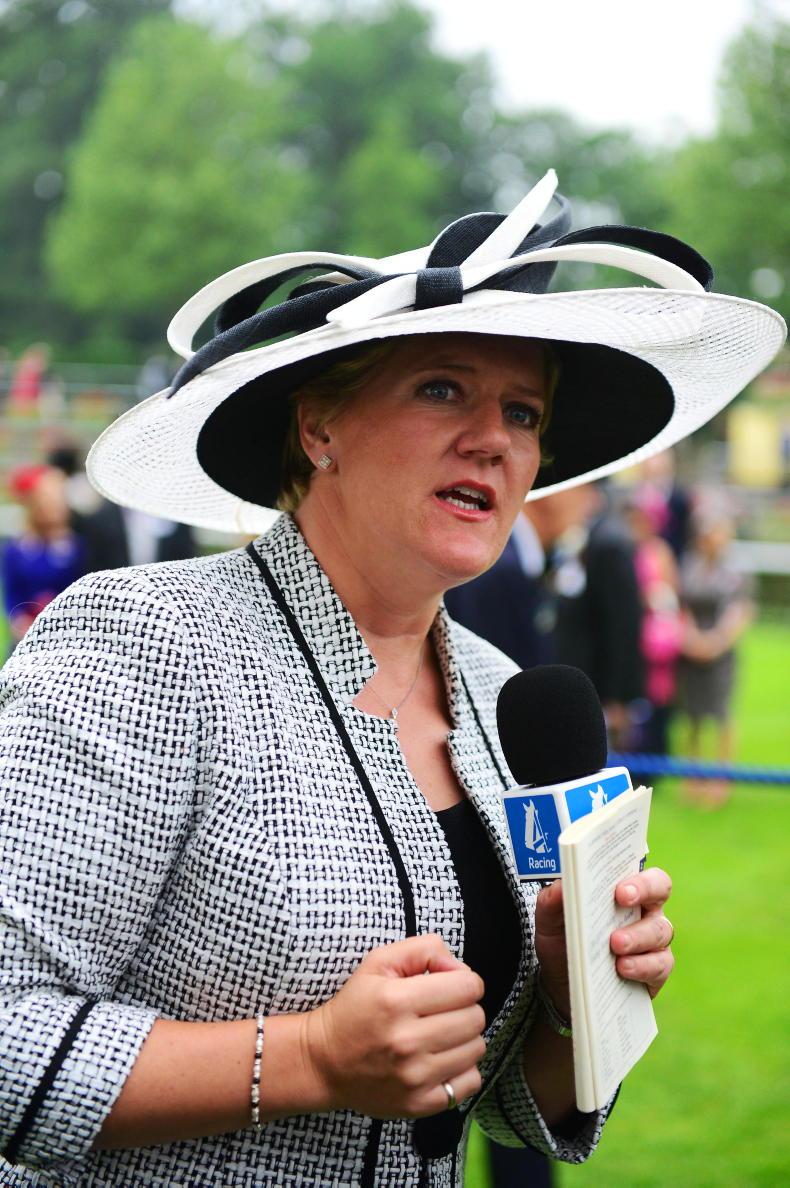



 This is a subscriber-only article
This is a subscriber-only article
 It looks like you're browsing in private mode
It looks like you're browsing in private mode




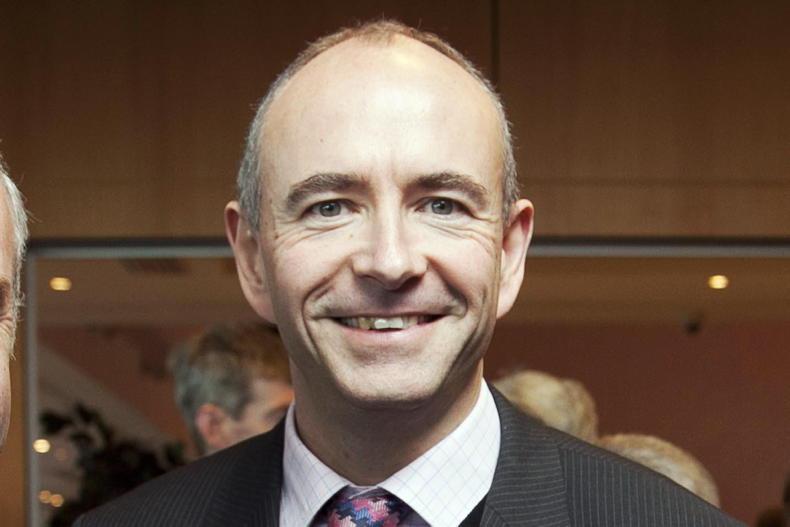
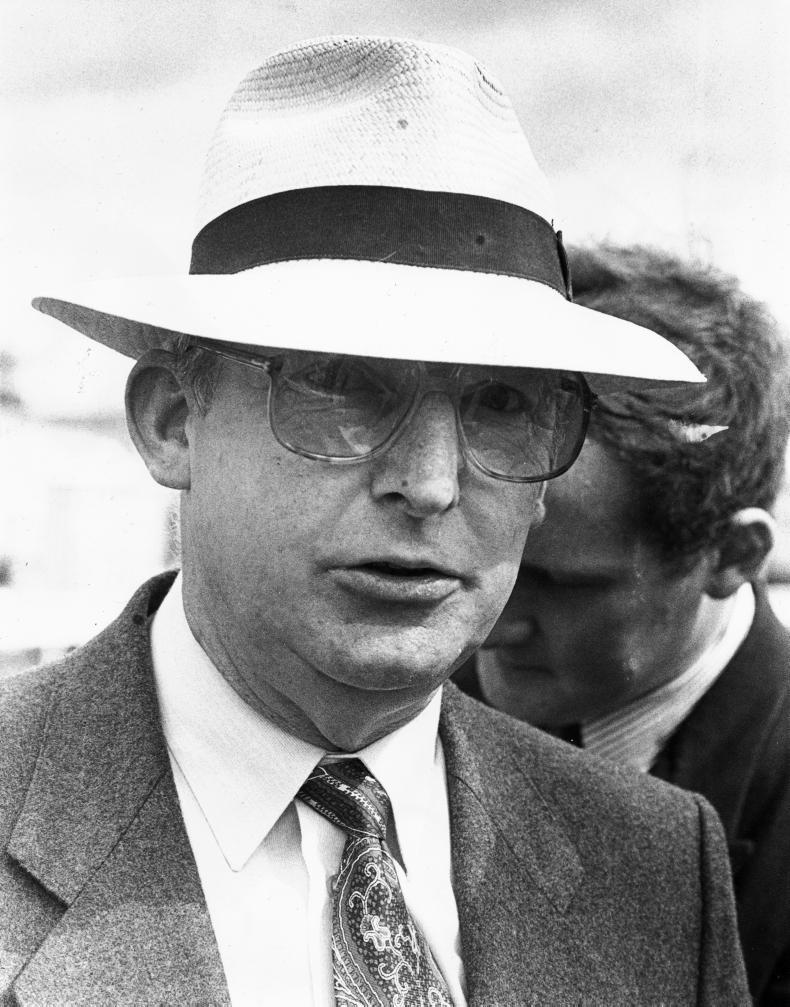

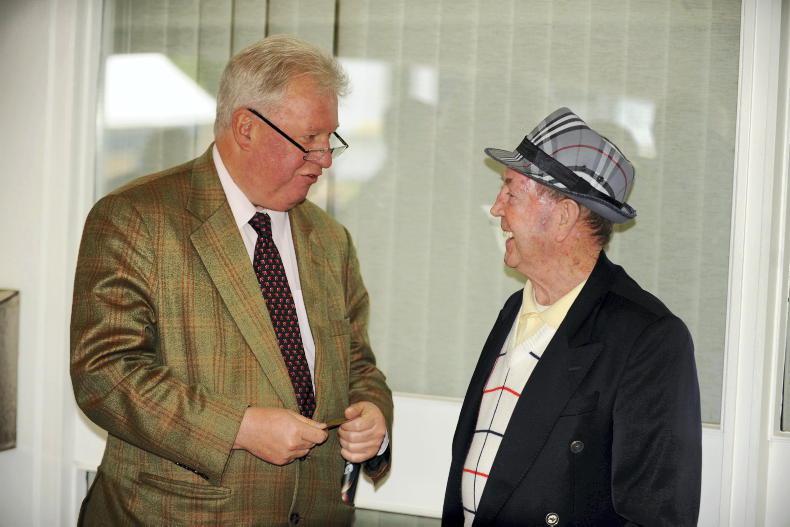
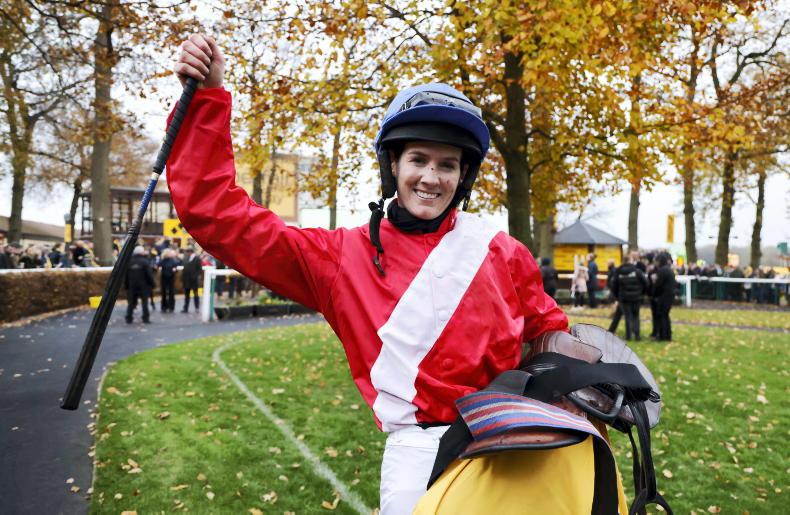
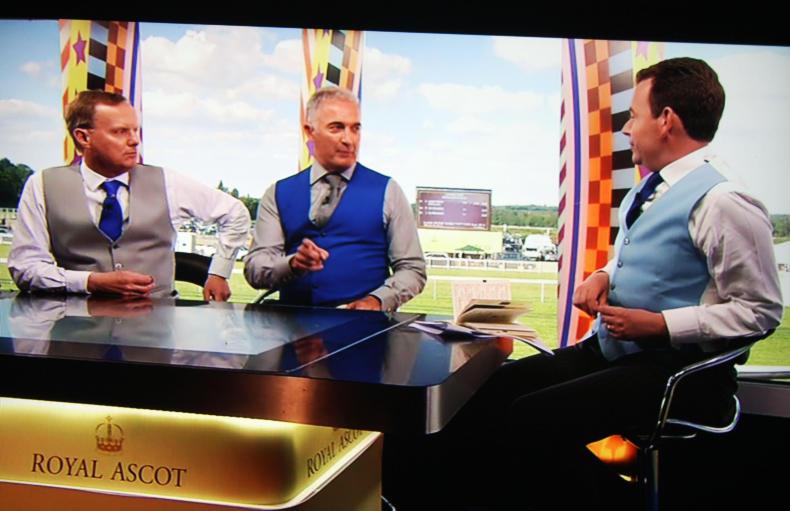

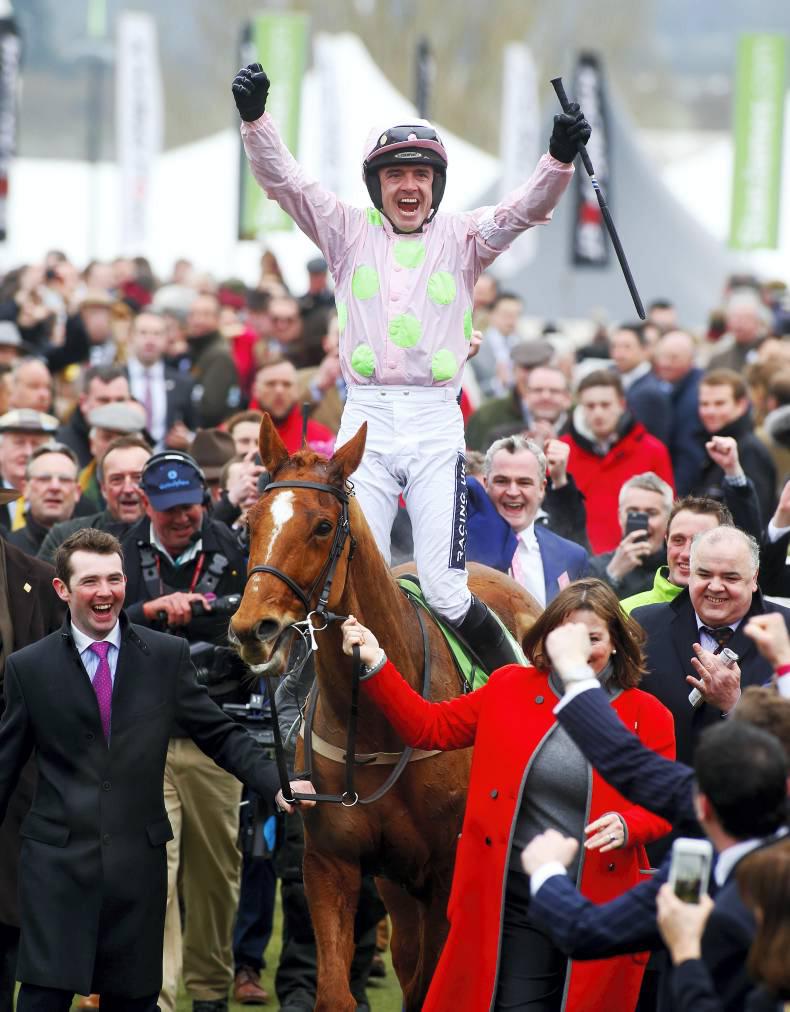
SHARING OPTIONS: